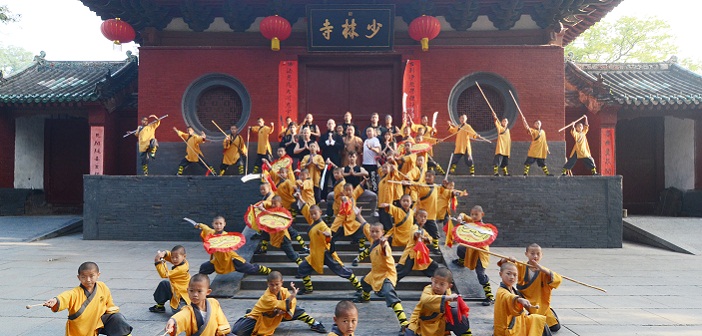In this column, Bizkids, we feature interviews with successful entrepreneurs and various professionals to share their advice to aspiring kids with entrepreneurial spirits. To send in your questions or advice, email cindyjenkins@beijing-kids.com.
Have you ever thought about turning your hobby into a business one day? Though you may assume it’s only suitable as a hobby, there’s a chance you can take what you like doing and turn it into a potential career. However, it not only demands your patience and passion, but also requires a model example to inspire you!
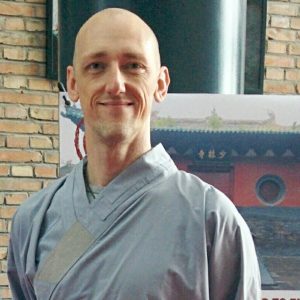
This time, our featured professional is AJ Donnelly, a British expat who arrived in Beijing in 1999 as a humble kindergarten teacher. Early on he saw the growing demand for experiences related to traditional Chinese culture, and wanted to find a way to help people better access them.
Having studied martial arts since the age of 8, and became a Daoist at the age of 14, he already had a good basis for understanding traditional Chinese culture. But after many years and obstacles, he was finally able to follow his calling as an entrepreneur and open one of China’s first foreign-run culture centers – Cultural Keys! Over the years, Cultural Keys has expanded to include the CK Culture Boutique, a bespoke Chinese art store, and CK Martial Hearts, which offers traditional Chinese Kung Fu courses. He’s also the founder of the Bootstrap Business Initiative, an organization that provides consultation services and helps first-time entrepreneurs access information and services for setting up low-budget businesses in Beijing.
Here, he shares his inspiring journey with us, from his passion for Kung Fu and Chinese culture, to sense of wonder, and how he turned his life-long interests into Cultural Keys, while unlocking China’s potential in the process!
What was your motivation to start Cultural Keys?
Looking back at the last five or ten years, there has always been a misunderstanding of China: people either think China is a terrible place, or they think it’s mysterious. But of course, neither of these is correct. And I just always wanted people to see the real China, traditional Chinese culture, and find as much as value in it as I find. Because I love it, not because I’m blind, but because I experienced it and I see how it improves my life and I want other people to understand it. That’s why we started giving people access to traditional Chinese culture.
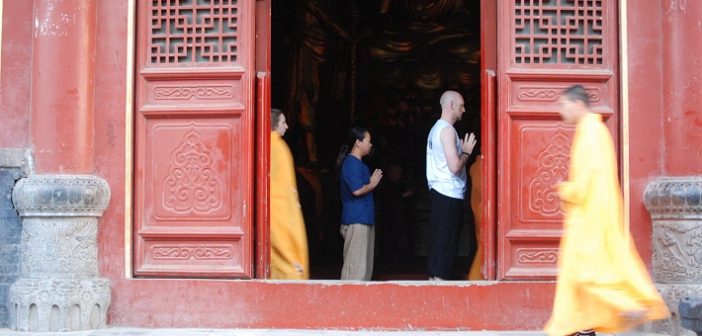
When did your interest in Chinese culture begin? Why do you like Kung Fu?
I started martial arts when I was 8, and then I started karate, because throughout my childhood, from day one until I left school, I was bullied every single day. I watched The Karate Kid, and I was like “wow he learned martial arts, I wanna do that too!” So I took karate for several years, and I went from karate to kickboxing, then to Kung Fu and eventually found Shaolin Martial arts.
How about the Kung Fu part of Cultural Keys? What’s the story related to Kung Fu?
Kung Fu is where we started originally. When myself, my wife Nic, and our partner sat down six years ago and decided to start the company, we were thinking about the first product we could introduce and offer people. We said, “we have to choose something that is so big, so easily recognizable and so untapped, that people look at it and straight away say they know what it is.” Because I had a background in martial arts, we decided to do something with Shaolin Temple. After visiting many fake schools, we eventually ended up at the real Shaolin Temple. I walked up to a monk and said that I wanted to study there, and the monk said, “Okay, follow me.”
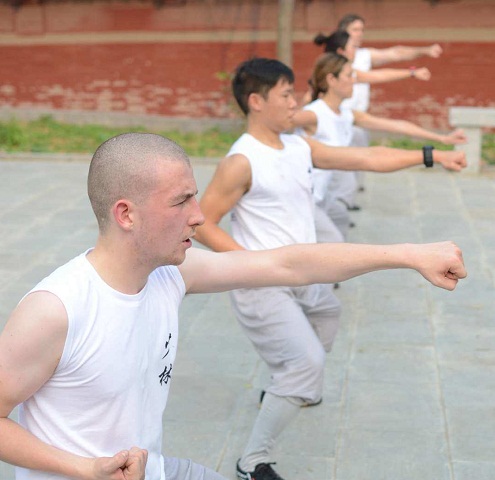
We got introduced to the leadership of the Shaolin Temple, and I trained there for a while. One day I sat down with the leader of foreign liaison department of the temple and told him about the company, and what we wanted to do. The leader said, “Yes, we have warrior monks in the Shaolin Temple, but we don’t do marketing, we don’t make money doing this. If Cultural Keys wants to help bring foreign students here to share the spirit of Shaolin and the idea of Buddhism, then yeah, we’d love to do that with you.”
From that meeting, it was about 18 months until the first program when we actually took students there. Because the advertisement took a year or so, and no one had signed up, we were close to giving up. I told the temple about it, and they said “It is normal. You must have patience; allow your soul to grow within the business like a tree, you can’t expect to sprout fruit immediately.” So I told myself to keep trying, and after another six months, we got a couple of customers who we were able to take to the Shaolin Temple, and it was a huge success. After that it just snow-balled. We did that for another two years, just building up a reputation, and when we realized it was going well, we decided to introduce something else. Step by step, we started other workshops like calligraphy, painting, and more. Now we offer 20-plus workshops.
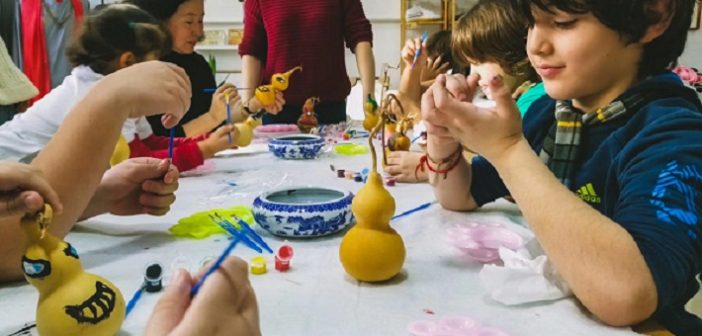
How many people work with Cultural Keys?
Just me and Nic. It’s not only having Cultural Keys, but we also have business events to organize as well, and people think it must be more than the two of us. Things like paintings and calligraphy; we have local experts in both subjects.
How do you usually reach out to people you want to collaborate with? Any tips to share?
First and foremost, you have to ensure you can offer something of high quality, and you have to be very confident in your product. When we started six years ago, the first thing I did was reach out to international companies and language schools, and said we have these great products, your teachers and staff will like it. But they didn’t want to collaborate with us. In the second and third year, after we’d done the first Shaolin program, they changed their attitude completely and introduced our program to their staff.
But you know in Beijing, there are also a lot of competitors. How do you compete with them?
If you are starting a business, you can compete either on price, or quality. Cultural Keys can never compete with price because there are some schools in Beijing where you pay RMB 50 for a calligraphy class. So we have to make sure that our products are the highest quality. Before we had our Guozijian experience, Nic spent a couple of weeks just walking around the hutongs, talking to people, finding out the real stories from locals who had lived there for the last 50 years.
It’s also about the personality; you can have a tour guide that just says lines like, “This was built in the 1950s,” but you have to put your personality in it. When I go on walks with people, I put all my personality there and interact with people.
What do you most enjoy about the entrepreneurial experience?
There is no such thing as freedom, but you know that everything you have is because of the effort you made, so whether you succeed or you fail, it’s about you. At least it gives you a sense of power in knowing that you are in control of what happens next. It’s not relaxing, or free, but it’s all about you. You are relying on yourself when you are an entrepreneur, and that empowers you.
Do you have anything else to share with kids who want to start their own business?
There are three tips that I’d like to give to any entrepreneur:
– Check things three times. Especially in China, you can get different answers from different people; you always have to check things three times no matter where you find the information.
– Make your own way. Anytime you hear meibanfa (impossible), anytime people tell you it can’t be done, don’t believe it. Because people don’t try, they will never know if there’s a banfa (possible).
– It’s always better to fail than to give up! In Kung Fu, there’s a basic posture called mabu (horse stance). When I teach horse stance, I tell people to hold it for one minute. Usually, after 15 seconds, people will stand up because it starts to hurt. However I tell them, if you have enough strength to stand up, you have enough strength to hold the pose for another five seconds, then you collapse, then you continue. You can’t learn anything through quitting, but you can learn from failure.
KEEP READING: Don’t Forget to Follow and Subscribe…: Are Beijing Teenagers Too Plugged In?
Photos: courtesy of AJ Donnelly

